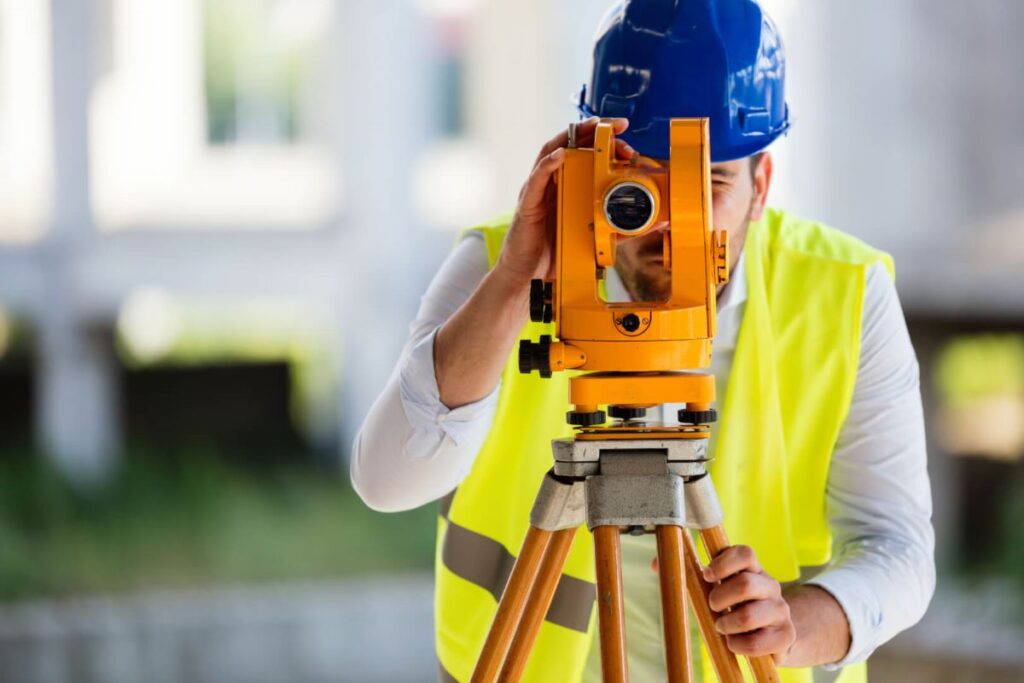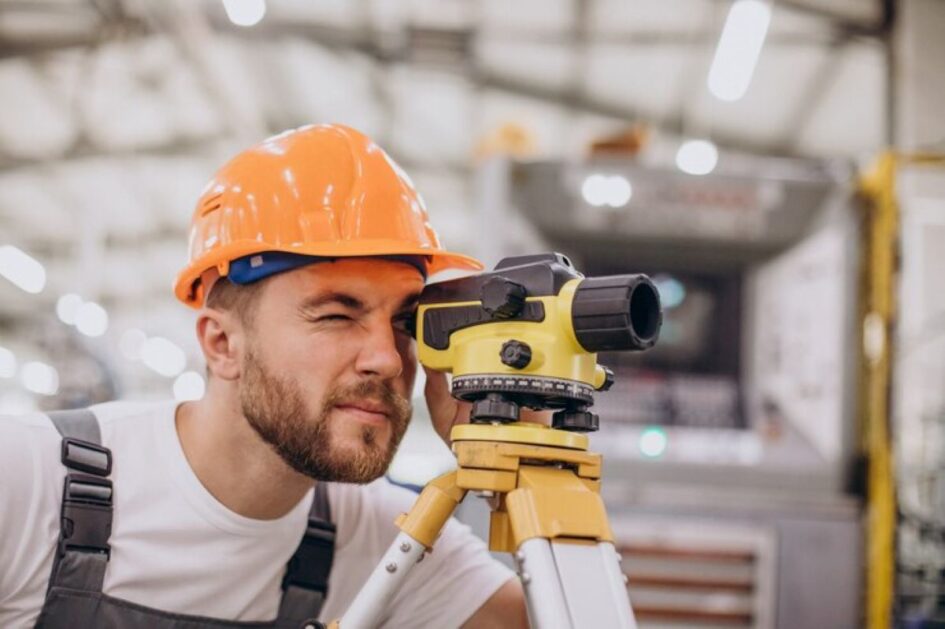Engaging the services of a professional surveyor can be a crucial step in various projects, from purchasing a new property to embarking on a large-scale construction project. Surveyors provide essential insights and data that can influence decisions and ensure compliance with legal and regulatory standards. Understanding what to expect when working with a professional surveyor can help you make the most of their expertise and ensure your project progresses smoothly.
The Role of a Professional Surveyor
Understanding Surveying Services
Professional surveyors offer a wide range of services that are essential for different types of projects. These services include land surveying, building surveying, and topographical surveying, among others. Each type of survey provides specific information that can aid in project planning, development, and execution. For instance, land surveying involves determining the boundaries and features of a property, which is crucial for property transactions and development projects.
Building surveying, on the other hand, focuses on the condition and structure of buildings. This type of survey is often required for property purchases, renovations, and compliance with building regulations. Topographical surveying provides detailed information about the terrain and features of a site, which is essential for construction and engineering projects. By understanding the different types of surveying services, you can better determine which ones are necessary for your specific needs.
Qualifications and Expertise
Professional surveyors are highly trained and qualified individuals who possess the necessary skills and knowledge to carry out their duties effectively. In the UK, surveyors often hold a degree in surveying or a related field and are members of professional bodies such as the Royal Institution of Chartered Surveyors (RICS). Membership in such organisations ensures that surveyors adhere to strict professional standards and continue their professional development throughout their careers.
The expertise of a professional surveyor extends beyond technical skills; they also possess a deep understanding of legal and regulatory requirements. This knowledge is invaluable when navigating complex property laws and ensuring compliance with local planning and building regulations. By working with a qualified surveyor, you can have confidence that your project will meet all necessary legal standards.
Initial Consultation and Planning
Setting Clear Objectives
The initial consultation with a professional surveyor is a critical stage in the surveying process. During this meeting, you will have the opportunity to discuss your project in detail and outline your specific objectives. Clear communication is essential to ensure that the surveyor fully understands your needs and can tailor their services accordingly. This stage also allows you to ask any questions you may have and gain a better understanding of the surveying process.
Setting clear objectives from the outset helps to establish a solid foundation for the project and ensures that both parties are aligned in their expectations. This clarity can prevent misunderstandings and ensure that the surveyor provides the most relevant and accurate information for your project.
Developing a Survey Plan
Once the objectives have been established, the surveyor will develop a detailed survey plan. This plan outlines the scope of the survey, the methodologies to be used, and the timeline for completion. The survey plan serves as a roadmap for the project, guiding the surveyor’s activities and ensuring that all necessary data is collected efficiently and accurately.
The survey plan also provides an opportunity to discuss any potential challenges or constraints that may impact the survey. By identifying these issues early on, the surveyor can develop strategies to mitigate them and ensure that the project remains on track. A well-developed survey plan is essential for the successful execution of the survey and the achievement of your project goals.
The Surveying Process
Data Collection and Analysis
The surveying process involves the collection and analysis of data to provide accurate and reliable information about the site or property. This data is gathered using a variety of tools and techniques, including GPS, laser scanning, and traditional surveying instruments. The choice of methodology depends on the type of survey being conducted and the specific requirements of the project.
Once the data has been collected, the surveyor will analyse it to produce detailed reports and maps. These documents provide valuable insights into the site’s features, boundaries, and conditions, which can inform decision-making and project planning. The accuracy and reliability of the data are paramount, as they form the basis for critical project decisions.

Communication and Reporting
Effective communication is a key aspect of the surveying process. Throughout the project, the surveyor will keep you informed of their progress and provide regular updates on their findings. This communication ensures that you are aware of any issues or changes that may arise and can make informed decisions based on the surveyor’s insights.
The final report produced by the surveyor is a comprehensive document that summarises the findings of the survey. This report includes detailed maps, data analysis, and recommendations, providing you with a clear understanding of the site’s characteristics and any potential challenges. The report is an invaluable resource for project planning and decision-making, ensuring that you have all the information you need to proceed confidently.
Post-Survey Considerations
Interpreting Survey Results
Once the survey is complete and the report has been delivered, it is important to take the time to thoroughly review and interpret the results. Understanding the implications of the survey findings is crucial for making informed decisions about your project. The surveyor can assist in this process by explaining the data and providing insights into any potential issues or opportunities that have been identified.
Interpreting the survey results also involves considering how they align with your project objectives and plans. If any discrepancies or challenges are identified, it may be necessary to adjust your plans or seek additional expertise to address these issues. By carefully reviewing the survey results, you can ensure that your project is based on accurate and reliable information.
Next Steps and Implementation
With the survey results in hand, you can proceed with the next steps of your project. This may involve finalising design plans, obtaining necessary permits, or commencing construction activities. The survey findings will play a crucial role in guiding these activities and ensuring that they are carried out in compliance with legal and regulatory requirements.
Implementing the survey results also involves ongoing communication with the surveyor and other project stakeholders. By maintaining open lines of communication, you can address any issues that arise and ensure that the project remains on track. The surveyor’s expertise can be invaluable in navigating any challenges and ensuring the successful completion of your project.
Benefits of Working with a Professional Surveyor
Accuracy and Reliability
One of the primary benefits of working with a professional surveyor is the accuracy and reliability of the information they provide. Surveyors use advanced tools and techniques to gather precise data, ensuring that you have a clear and accurate understanding of the site or property. This accuracy is essential for making informed decisions and avoiding costly mistakes.
The reliability of the surveyor’s findings also provides peace of mind, knowing that your project is based on sound data and expert analysis. This confidence can be invaluable when navigating complex projects and ensuring compliance with legal and regulatory standards.
See Also : A Land Surveyor’s Role in Property Development and Construction
Expert Guidance and Support
In addition to providing accurate data, professional surveyors offer expert guidance and support throughout the project. Their knowledge of legal and regulatory requirements, as well as their experience in the field, enables them to provide valuable insights and recommendations. This expertise can help you navigate challenges, identify opportunities, and ensure the successful completion of your project.
The support of a professional surveyor also extends beyond the survey itself. They can assist with interpreting the results, developing strategies to address any issues, and ensuring that your project remains on track. This ongoing support is essential for achieving your project goals and ensuring a successful outcome.

Conclusion
Working with a professional surveyor is an essential step in many projects, providing the accurate data and expert guidance needed to make informed decisions. From the initial consultation and planning stages to the surveying process and post-survey considerations, a surveyor’s expertise is invaluable in ensuring the success of your project. By understanding what to expect when working with a professional surveyor, you can make the most of their services and ensure that your project progresses smoothly and efficiently.

Leave a Reply